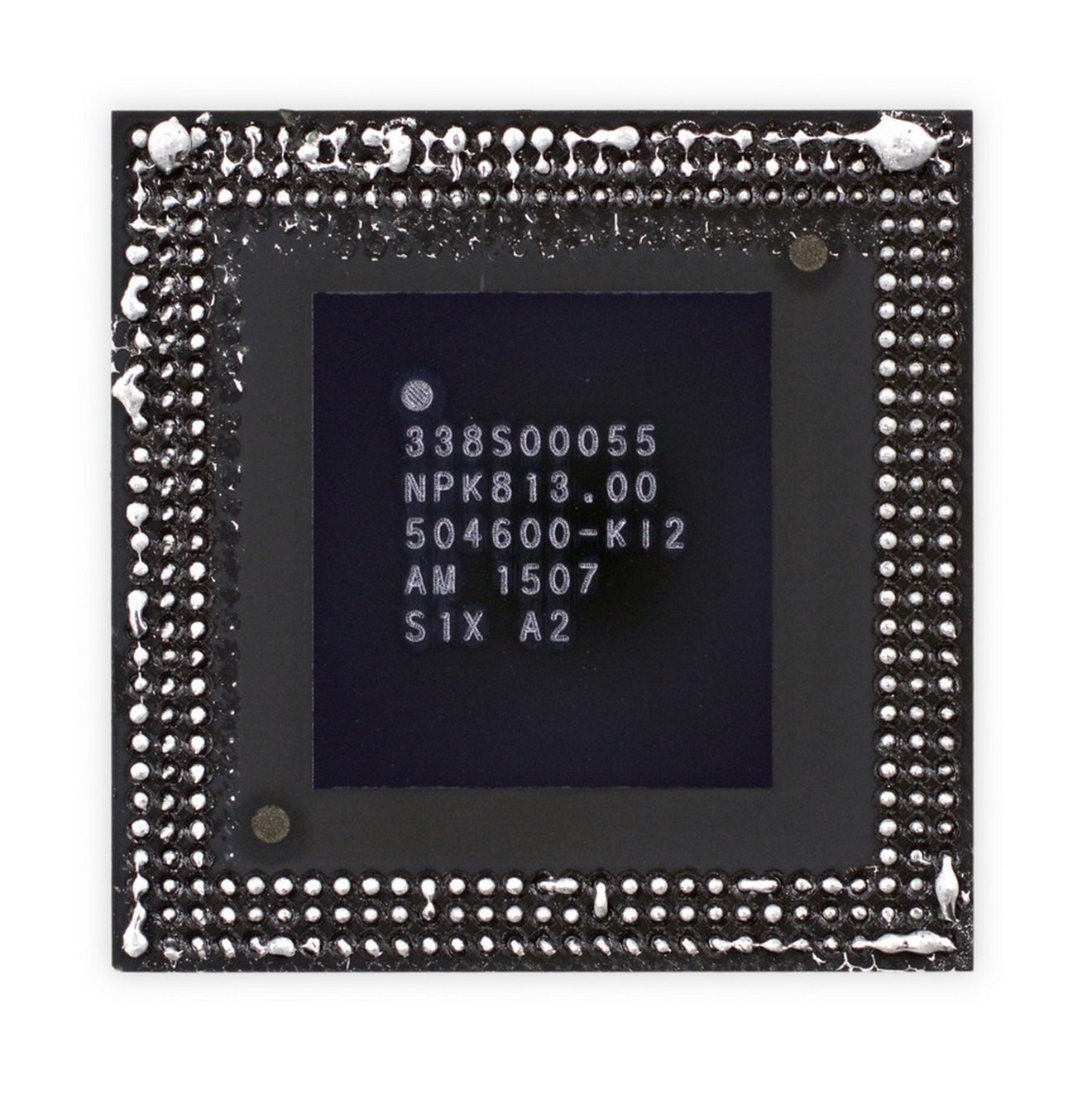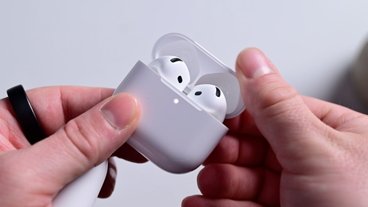Already a showpiece of technical innovation, Apple's 12-inch Retina MacBook appears to have one more trick up it sleeve in the form of a new, in-house SSD controller likely born of the company's 2011 acquisition of Israeli firm Anobit.
The new chip bears part number 338S00055, and while it isn't screened with with an Apple logo — Â as most of the company's bespoke silicon is — Â semiconductor analysis firm ChipWorks confirmed to iFixit that the chip is "definitely an Apple custom device." OS X's System Information utility reports the part as "Apple SSD AP0512H."
Taiwanese chipmaker TSMC is said to have been responsible for fabrication.
Moving to an in-house SSD controller, rather than using off-the-shelf parts from longtime suppliers Toshiba or Samsung, is a logical next step for Apple as it looks to become more vertically integrated. The writing has been on the wall since Apple paid nearly $400 million for Anobit, whose MSP technology improves speed and reliability in NAND flash by predicting and reducing write errors.
At the same time, Apple's new controller enabled the company to shift its SSD interface from the venerable AHCI protocol to NVMExpress, a replacement protocol specifically optimized for PCIe SSDs that has yet to be widely adopted in consumer devices. NVME brings with it a number of performance improvements, which also lead to power efficiency gains as drives spend more time in low-power idle modes.
While this is a troubling development for Toshiba and Samsung, who potentially risk losing their supply contracts for drive controllers throughout Apple's product lineup, it might also presage an even larger shift toward fully-integrated NAND architectures. Flash storage is arguably the second most important component in Apple's supply chain, trailing only the A-series processors used in iOS devices.
That would be a huge blow for Toshiba, Samsung, SK Hynix, and SanDisk, who now supply the bulk of Apple's NAND in orders worth billions of dollars per year.
 Sam Oliver
Sam Oliver








 Wesley Hilliard
Wesley Hilliard

 Oliver Haslam
Oliver Haslam
 Christine McKee
Christine McKee
 Amber Neely
Amber Neely
 Andrew Orr
Andrew Orr

 Sponsored Content
Sponsored Content






24 Comments
The logical next step would be for Apple to design their own baseband.
[quote name="RalphMouth" url="/t/185832/apples-retina-macbook-bears-first-fruits-of-anobit-acquisition-with-new-in-house-ssd-controller#post_2711502"]The logical next step would be for Apple to design their own baseband.[/quote] And they already bought a team to do just that. :lol:
There's Apple again. Slowly becoming almost totally self sufficient. Steve would be proud.
Designing great products that can't be copied. Tough for competitors.
Designing great products that can't be copied. Tough for competitors.
Maybe Apple can share the wealth by selling these controller chips? It would drive down Apple's own cost if the volume goes up, right?